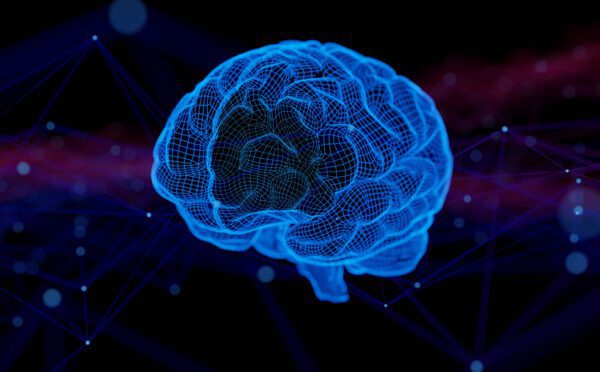Authors
Partner, Intellectual Property, Toronto
Ottawa Managing Partner, Ottawa
Although artificial neural networks (ANNs) have evolved to increasingly form the backbone of modern commerce, their patentability remained unsettled. A July 19, 2024 decision of a U.K. appellate court now provides some guidance to AI-driven companies, finding that a trained ANN to provide song recommendations is not patentable.
From the time ANNs emerged as the backbone of today’s most impactful artificial intelligence (AI) technologies, there has been uncertainty about what aspects of ANNs are patentable. The general thinking in the patent profession has been that the core mathematical algorithms in ANNs are not patentable, while practical and technical applications of ANNs and ancillary technologies may be.
The evolution of the law regarding patent-eligible subject matter has not helped or provided much clarity. In the United States, the 2014 decision in Alice Corp. v. CLS Bank International resulted in many computer-implemented methods being unpatentable for being too abstract. However, the application of this decision has been frustratingly inconsistent. In Canada, there has been continued controversy regarding the Patent Office’s application of the Federal Court of Appeal’s 2012 decision in Amazon.com Inc. v. Canada (Commissioner of Patents), with the Patent Office often reading hardware components out of patent claims and thereby finding patent claims unpatentable for being too abstract.
In the U.K., the patent-eligibility of ANN and their uses appeared potentially more expansive. In Emotional Perception AI Ltd v. Comptroller-General of Patents, Designs, and Trade Marks [PDF], the patentability of an ANN was squarely considered. The England and Wales High Court ruled that a system utilizing an ANN was not excluded from patent eligibility as an unpatentable “computer program”. However, this decision turned out to be cold comfort for ANN patent applicants, as on July 19, 2024, the England and Wales Court of Appeal has now reversed that decision.
Court of Appeal considers trained ANNs to be unpatentable computer programs
In Comptroller-General of Patents, Designs and Trade Marks v, Emotional Perception AI Limited [PDF], the Court of Appeal examined the patentability of Emotional Perception AI Ltd.’s (EPL) invention directed to a system that utilizes an ANN to provide a user with media file recommendations. The technology purports to use the ANN to generate better music recommendations by integrating a semantic/emotional element with objective song properties. The patent claims comprise the system itself and the method of providing file recommendations, which included training the ANN and storing, transmitting and receiving relevant files.
The central issue revolves around whether an ANN is a “computer” or “computer program,” and the Court of Appeal found that it was:
- The Court of Appeal defined a “computer” as a machine that processes information in a certain way, and a “computer program” was defined as a set of instructions which cause the machine to process information in a specified way.
- Applying these definitions, the Court found that the ANN satisfied the definition of a computer and that the weights and biases of the nodes within the neural network constituted a computer program, acting as instructions for processing and manipulating the inputted data in a particular way.
- The Court did not accept a limitation on the definition of a computer program that would exclude programs generated by computers (as opposed to humans).
- In its assessment, the Court did not consider the nature of the problems the ANN aimed to solve and was unmoved by the fact that weights and biases were derived through ANN training, with the training step express within the patent claim.
The Court explained that not all ANN-implemented inventions are unpatentable. Rather, ANN-implemented inventions are “in no better and no worse position than other computer implemented inventions.” EPL’s invention was found not to have sufficient technical effect because its ANN-based music file recommendations are based on a file’s semantic qualities, with semantic comparisons not providing the required technical effect to justify patentability.
Canadian applicants should approach ANN patenting cautiously
This U.K. decision is notable for Canadian companies in the ANN field, as it provides guidance from an appellate court in a jurisdiction that is persuasive to our own courts, regarding how patent offices should approach ANN-based inventions, conceptually treating ANNs like other software for patent-eligibility purposes.
While Canada has its own scheme for addressing the patentability of computer-implemented inventions, decisions in other jurisdictions (in particular, the U.K.) can inform and influence Canadian legal discourse and practice. The reasoning of the Court of Appeal may well influence approaches in Canada, the U.S. and elsewhere. This recent decision to restrict patentability of an ANN-based method, even where training was involved, provides at least some initial guidance to Canadian companies looking to patent ANN-based inventions and to assist in managing their risk vis-à-vis third-party patents.
The full impact of the Emotional Perception decision of course remains to be seen, and the patentability of ANN-driven inventions is far from settled. Emotional Perception may yet seek permission to appeal the ruling to the U.K. Supreme Court, which may decide to hear the case, given the novelty and importance of the disputed issue. Should leave be granted, this will be the first decision to address these issues at a top Court, providing even more definitive guidance. Companies innovating in the AI field should monitor for developments in patentability of AI-driven inventions and be prepared to adapt to changes in the intellectual property landscape that may arise.
Special thanks to Kieran Ecclestone for his assistance in the preparation of this Update.


